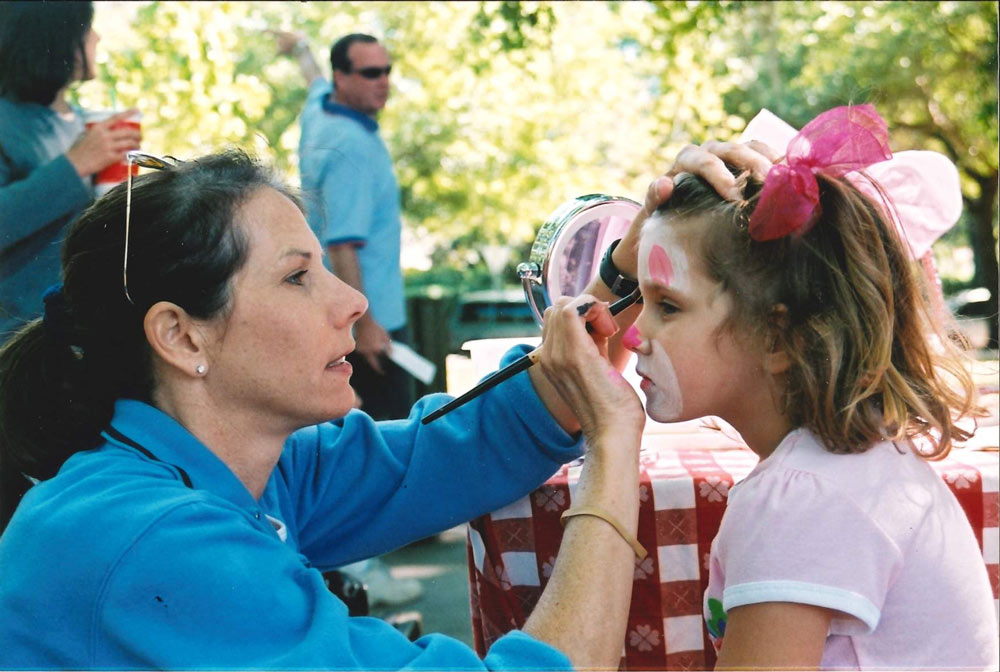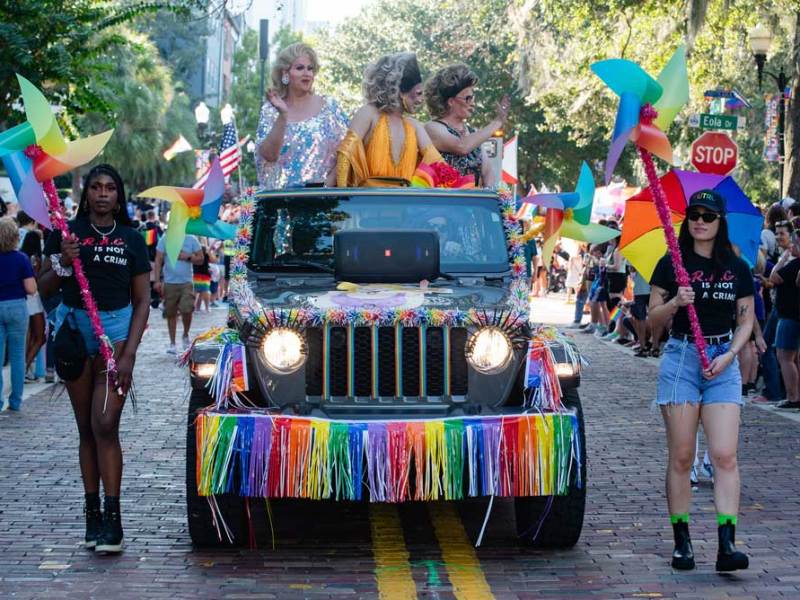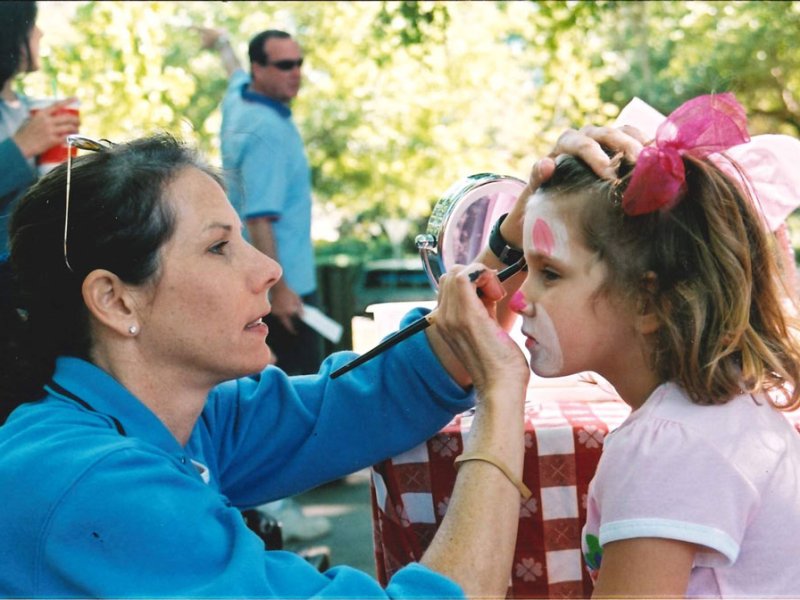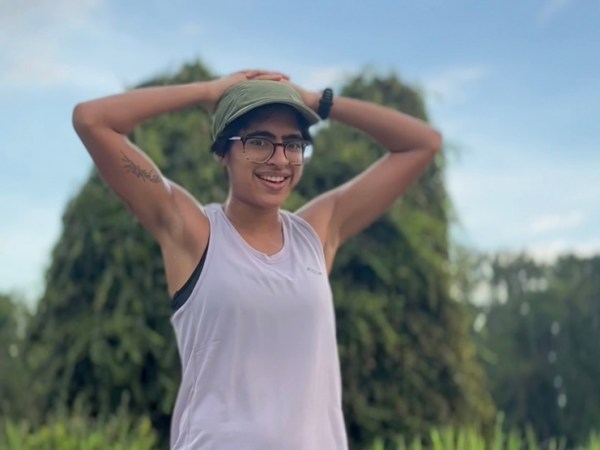About two decades ago, the Orlando Sentinel published a feature on Central Florida’s “gayby boom,” spotlighting parents like Lisa Gray (née Krall), who worried about raising children without legal recognition for both parents. At the time, Florida law barred gay adoption, leaving many parents without rights in cases of illness, separation or worse.
Gray, who carried the pregnancy, told the Sentinel she had even taken the precaution of asking her partner’s brother to serve as a sperm donor so her partner would have some measure of protection if tragedy struck. “Can you imagine how she would feel if I died in a car accident and my parents stepped in and took our child?” she asked.
Out of those worries came resolve. Gay Parents of Orlando, later renamed LGBTQ+ Parents of Central Florida, originated when Gray and her partner and a handful of other lesbian couples began gathering with their toddlers, meeting for the first official playdate in 2003. What started as a few families soon grew into hundreds. Their purpose was simple: give their kids the chance to see other families that looked like theirs, while parents found solidarity in the challenges of raising children without legal and cultural affirmation.
Amid renewed and truly frightening political attacks on LGBTQ+ rights — from restrictions on gender-affirming care to book and curriculum bans — Gray says there is a need for this kind of community “more than ever.” Across the country, a record number of LGBTQ+ candidates are running for office, driven, they say, by the rollback of protections for queer and trans people. In Florida, where debates over school books, parental rights, gender-affirming care and adoption laws have become political flashpoints, the group Gray helped launch still provides connection and safety.
Orlando Weekly spoke with Gray about the beginnings of the club, the challenges parents faced, and what she wants today’s families to know.
What made you realize Orlando needed a gay parents’ group?
My daughter, Cori, was about 2 and a half or 3, playing with her dollhouse. I asked her who lived there, and she said, “The mother and the father and the three children.” That’s when I knew she needed to see families that looked like hers. Although I had the idea to create a group to support gay parents and their families and took the initiative to invite people, it wouldn’t have thrived without all the parents who stepped up, took leadership roles and helped organize events and promote the group. It took a village.
Where was the first gathering?
We met at Cypress Grove Park. It was beautiful — big cypress trees, soft grass, picnic tables and a playground. At that first meeting there were maybe 16 people, mostly female couples with toddlers, and one family that included their donor dad and his partner. The kids were meeting for the first time. Conversations were about diapers, naps, daycare. Everyday parenting.
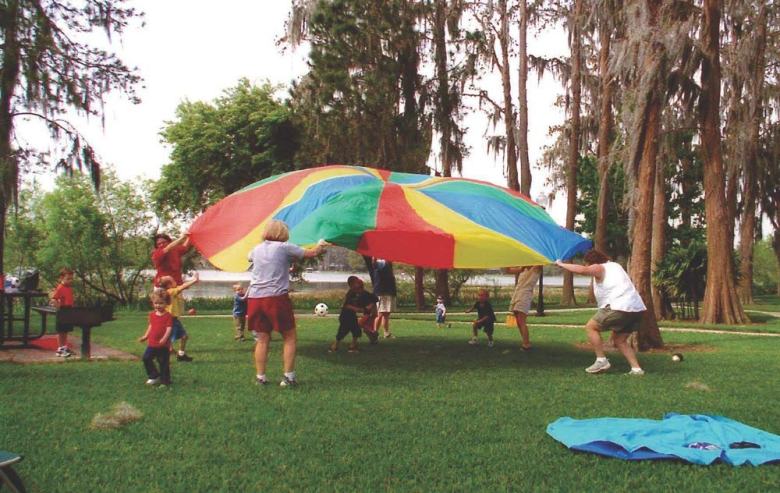 Gay Parents of Orlando playdate Credit: courtesy Lisa Gray
Gay Parents of Orlando playdate Credit: courtesy Lisa Gray
How did word spread in those early years?
We put flyers in the gay bookstore, listed ourselves in Watermark and told friends. It grew fast. Within a few months we had 35 families. Within a year or so, there were two or three hundred.
What activities did the group organize?
We met the first Saturday of every month, so people knew they could count on it. Then we added bigger events: Easter egg hunts at Delaney Park, camping weekends at Wekiwa Springs, bowling nights, parents’ nights out. We even had a psychiatrist come talk with us about parenting. College students from UCF’s LGBTQ group volunteered, running egg-dyeing stations and bounce houses. The kids loved it.
What were some of the legal and social challenges parents were facing?
Gay adoption was banned here at the time. Some families moved to states like Pennsylvania or New York so the non-biological parent could legally adopt. Breakups were especially painful — sometimes a parent who had been in the delivery room had no legal rights at all. We also shared stories about schools that weren’t affirming. It was hard.
What do you think people misunderstand about families like yours?
Some assume we wanted something different for our children. In reality, it was identical to the environment most parents want to create for their kids: family dinners, story time when you tuck them into bed, holiday traditions, Easter egg hunts, camping trips.
Why do you think the group is still important today?
More than ever. Back then, homophobic people at least thought it was politically incorrect to be openly hateful. Now, it’s right out in the open. You just have to scroll social media or open the paper. The group gives kids the chance to see other families like theirs, and gives parents community when it feels like the world is against you.
Did friendships from those early days last?
Absolutely. Some of the families are still my close friends. My daughter’s close childhood friends from the group are still in our lives. Many of the kids are thriving — college, careers, you name it.
What advice do you give LGBTQ+ parents raising young children now?
Get off social media and meet face-to-face. Let the kids play together, and just hang out with families who share your experience. It’s fun, it’s affirming, and it’s an anchor when everything else feels uncertain.
Orlando’s daily dose of what matters. Subscribe to The Daily Weekly.
Related Stories
‘We needed families that looked like ours’
They’re part of a charity team organized by the LGBTQ nonprofit Point of Pride to run the NYC marathon next month
This article appears in Oct. 15-21, 2025.
Related

